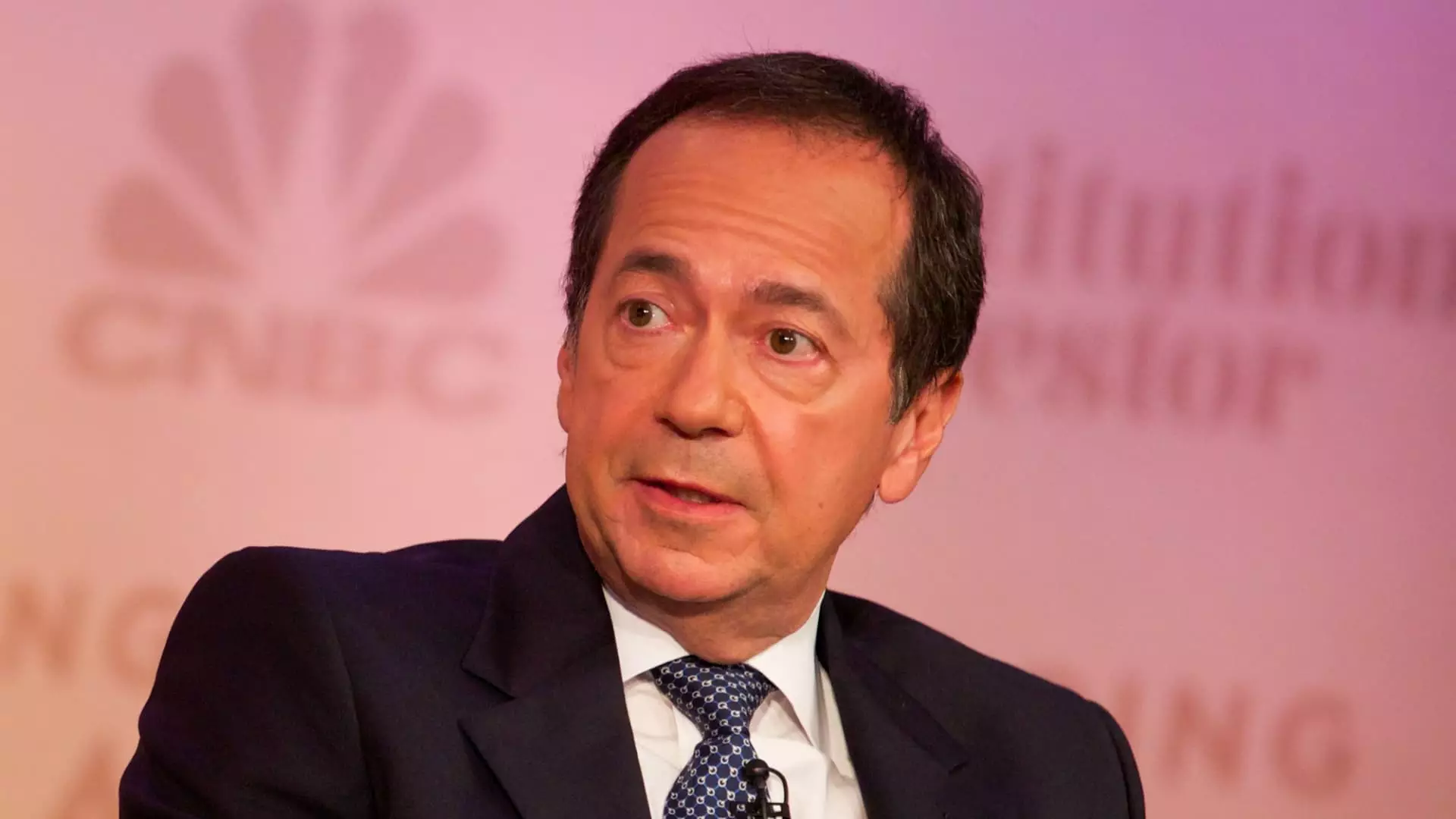John Paulson, a billionaire hedge fund manager known for his prescient bet against the housing market during the 2008 financial crisis, offers a stark warning regarding the potential implications of proposed tax reforms by Vice President Kamala Harris. In a recent interview with CNBC’s “Money Movers,” Paulson articulated his fears that the implementation of these tax policies could trigger a significant downturn in the financial markets, leading to a possible recession. His views are grounded in a deep understanding of financial mechanics and past economic behavior, providing a unique perspective that merits careful examination.
Paulson has identified several key components of Harris’s tax plan, including raising the corporate tax rate from 21% to 28%, increasing the capital gains tax from 20% to 39%, and introducing a taxation system on unrealized gains, specifically a 25% tax for those with substantial asset holdings. He argues that these measures would lead to widespread market ramifications, compelling investors to react strongly to these tax hikes. The notion that such reforms could induce market crashes is not merely a reflection of Paulson’s personal biases but is rooted in historical economic patterns where tax increases have led to rapid market adjustments.
Paulson’s forecasts hinge on the broader economic principle that high taxation, particularly on capital gains and corporate earnings, can stymie investment and thereby hinder overall economic growth. His assertion is supported by a characteristic belief among economists that favorable tax environments promote investment, which in turn spurs job creation and wage growth. Taxation on unrealized gains, which targets wealth but doesn’t account for actual liquidity, could essentially prompt asset holders to liquidate investments preemptively to offset tax liabilities, further exacerbating market volatility.
This concern is echoed by some Wall Street strategists who argue that increased corporate tax rates could curtail the earnings of S&P 500 companies, thereby affecting their stock prices and investor sentiment. However, opinions differ on the severity of such outcomes. While not every analyst agrees with Paulson’s apocalyptic outlook, his warnings highlight a critical discomfort among investors regarding potential shifts in fiscal policy.
While Paulson’s viewpoint aligns with a certain school of economic thought that prioritizes low tax rates to encourage growth, it is essential to recognize the contrasting views that society could benefit from a more progressive tax system. Advocates for higher taxes on the affluent contend that enhanced revenue could fund essential public services and infrastructure, promoting a more equitable distribution of wealth. This dichotomy highlights a broader ideological battle: whether to prioritize immediate economic gains or to invest in long-term societal benefits.
Investors like Mark Cuban have expressed skepticism regarding Harris’s targeted tax plans, particularly the taxation of unrealized gains. There is a palpable uncertainty about how these proposals could navigate through Congress, suggesting that the political landscape may temper their enactment. This uncertainty leaves investors in a precarious position, weighing the potential ramifications of plans that might never come to fruition against their lived experiences of market realities.
Paulson’s political involvement—particularly as a prominent supporter of Donald Trump and rumored candidate for Treasury Secretary—adds another layer of complexity to his views. While he champions certain tax policies, there is also apprehension about how Trumpian economic strategies may incorporate protectionist measures that could stifle growth. Tariffs have been a noted aspect of Trump’s dealings, raising concerns about inflation and broader market impacts.
Moreover, Paulson’s argument that targeted tariffs would not be inflationary raises questions about the balance between national security interests and the free market’s needs. Observers must consider how differing economic policies crafted by different administrations could affect not just the financial markets, but the everyday lives of citizens as well.
The interplay between tax policy and economic vitality is a nuanced one, and John Paulson’s warnings reflect deeper anxieties among investors about the current political climate. As potential fiscal reforms loom, both the markets and the public must remain vigilant. Economic policies will undoubtedly evolve alongside political landscapes, making it imperative for investors and policymakers to engage in ongoing dialogue about the ramifications of tax reforms. In an era of uncertainty, the stakes remain high, and the need for informed analysis is greater than ever.

